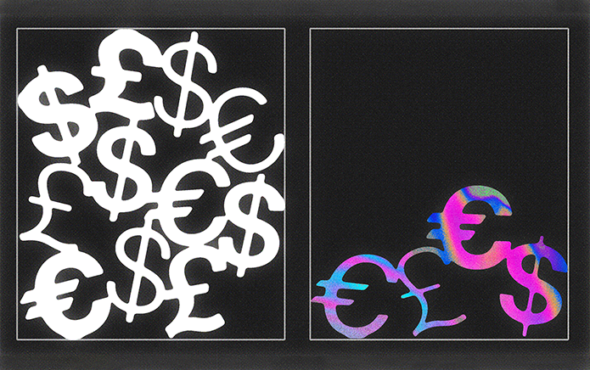
If you’re someone who routinely finds yourself becoming less sexually attracted to somebody the better you get to know them, there is a chance you may be fraysexual.
Of course, I cannot label anybody’s sexuality apart from my own, but I did somewhat recently post about this sexual orientation on social media and messages came flooding in from grateful folks who were relieved to discover that there was terminology for the unique way they experience sexual attraction.
Fraysexuals are individuals who are sexually attracted to strangers, or people they don’t know very well. In a most general sense, the more a fraysexual gets to know a person, the less sexually desirable that individual becomes. The degree to which this happens will vary by individual, of course, but that is the gist.
Fraysexuality is a sexual orientation on the asexuality spectrum. Contrary to popular opinion, this isn’t because they don’t experience sexual attraction, rather they experience sexual attraction in a very specific way.
Fraysexuality is considered the opposite of demisexuality, a sexual orientation describing someone who experiences sexual attraction only after they’ve established an emotional connection. For example, where a demisexual may require several dates before experiencing sexual attraction, a fraysexual would likely lose sexual attraction the better they get acquainted with someone.
Like most niche sexual orientations, people often dismiss the legitimacy of fraysexuality, insisting the person simply has “commitment issues” or an avoidant attachment style. This isn’t true, and the result of a lack of information and visibility. A fraysexual can have commitment issues and/or an avoidant attachment style, but sexual orientation is its own entity apart from these traits.
“How one feels about committing to a relationship–particularly feeling anxious, nervous or avoidant of making relationship commitments–is not connected to our sexual orientations and how bodies function within our sexual orientation,” Cody Daigle-Orians, asexuality educator, author and creator of Ace Dad Advice, explains. “[Fraysexuality is] a physical experience that has been demonstrated as a pattern over time, and is how this person functions concerning sexual attraction. There isn’t going to be ‘The One’ who will be different for them. This is who they are to their core.”
The Good Men Project offers qualities folks who think they may be fraysexual should consider: First, although you long for a stable and loving relationship, you gradually lose interest in sex. Second, early on in a relationship, you have intense sexual desire, which gradually fades as you get to know the other person better. Next, no matter how committed you are emotionally, you cannot rekindle the flame. And last, you are more attracted sexually to strangers than to those you know well.
Ben, 33, identifies as fraysexual, and says he’s never been the type to need a romantic or emotional connection to enjoy sex. If anything, these emotions would detract from it. This became particularly evident in his prior relationship, where he’d regularly cheat with strangers instead of having sex with his partner.
When they split, Ben decried he’d never be in a monogamous relationship again, and instead pursued his ambitions of becoming an “ethical slut.” Ben is now happy in an open relationship, and fully discloses the sex he has outside of his relationship with his partner. In fact, it’s become foreplay. “We both love hearing about the other’s random hookups during sex, and it’s sort of a way to bring that thrill of unattached sex into our loving sex life,” he says.
Jasper, 35, is a fraysexual who feels similarly about monogamy. “As a fraysexual, committing to monogamy is equivalent to celibacy; I cannot find sexual satisfaction inside a relationship,” they say. “Over the last ten years, I’ve been able to find rewarding and fulfilling non-monogamous relationships that have given me the freedom to express my sexuality outside of my relationship.”
Jasper first caught wind of fraysexuality when listening to Savage Lovecast, a sex advice podcast from Dan Savage. Though it was mentioned just briefly, Jasper was intrigued by what he’d heard and rushed to Google the term.
“The description validated the many confusing feelings I have experienced with everyone I have ever dated,” they remember. “My relationships always start hot and heavy, but my sexual interest dwindles after a few months, even as emotional intimacy continues to grow.”
Not long after, Jasper sat down with their partner and explained the discovery. While their boyfriend wasn’t thrilled by the news, he was grateful to know that the lack of sexual desire wasn’t about him. They decided to navigate Jasper’s new discovery together.
“The conversation helped us temper expectations about what our sex life has to look like,” they say. “Like all relationships, it requires constant communication about our wants, needs, and desires to make it work.”
As a fraysexual, committing to monogamy is equivalent to celibacy
While Jasper and Ben happen to be in open relationships, fraysexuals can thrive in any type of relationship style. As Jasper said, the key is being clear about your wants, needs, and desires.
“The partners have to be clear about how they function in relation to sex and sexual practice and are committed to being frank about changes in the dynamic,” Daigle-Orians says. “Relationships are about compromise, and as much as a fray partner should understand and make space for their partner’s experience, the partner needs to make space and understanding for the fray partner to be fray.”
Both Jasper and Ben admit one of the largest and most frequent hurdles about fraysexuality has nothing to do with them, but explaining their sexual orientation to others. Jasper says it feels like they are constantly feeling pressure to convince people that fraysexuality is different from “having less sex with your partner as time goes on,” which, of course, is very common in relationships. Both often feel judged following their disclosure as many will absentmindedly dismiss fraysexuality as some selfish excuse to sleep around.
This closed-minded perspective is sex-negative, queerphobic, and reinforces heteronormative, homonormative and mononormative (the idea that monogamy is more natural than non-monogamy) structures that are harmful to everybody. “We have a very harmful idea that sex is only valuable when it’s connected to emotional or romantic feelings, and it’s preferable if those feelings are exclusive to one other person,” Daigle-Orians says. “But sex can be beautiful, powerful, fulfilling, and valuable without deep feelings. Queer folks need to stop thinking that we achieve some sort of nobility when we mimic heteronormative values and standards for sex.”
It isn’t mentioned much, but sexual attraction isn’t necessary in a relationship. It can be an important and helpful component, but it isn’t essential for a relationship’s success. Normative sexualities have led us to believe the only good relationship is one where sex, romance and all types of attraction are firing all at once, forever. But that’s not true, or all that realistic.
View this post on Instagram
Though it’s not surprising, very little (if any) research has been written on fraysexuality. So unfortunately we don’t exactly know how common it is, though the Good Men Project did casually toss out that one to five percent of the population is fraysexual without citing any sources. Considering one to two percent of the population is asexual, this figure probably isn’t too far off.
Of course, there could be many more fraysexuals out there, they just don’t know such a thing exists. Being visible, vocal, and patient (oh, so patient) has proven to popularise and legitimise lesser known sexualities throughout history. Much like Dr. Joe Kort has recently accomplished when popularizing “sides,” who represent individuals that prefer non-penetrative sexual acts.
Fraysexuals: If it feels right, satiate people’s curiosity by educating them on your sexuality. Advocate for asexuals everywhere. Who knows, maybe they can relate. One of my closest friends now identifies as a fraysexual after we had a frank chat about it on a road trip. Maybe this article has done the same for you.



